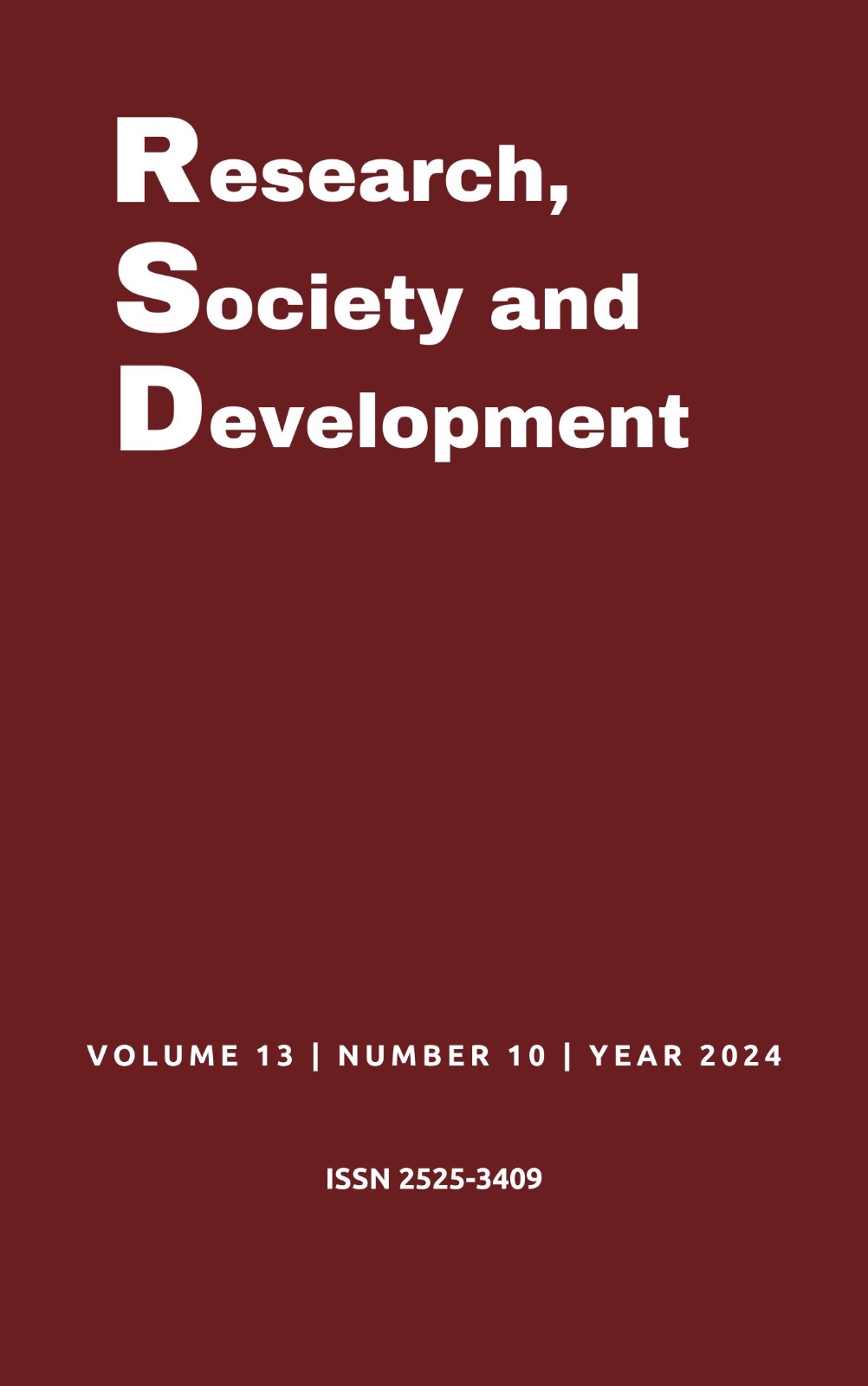Social research on the management of postpartum women with postpartum depression at the Nossa Senhora de Lourdes Maternity Hospital
DOI:
https://doi.org/10.33448/rsd-v13i10.47112Keywords:
Maternity, Postpartum depression, Gestation.Abstract
The objective of this research is to present aspects of the management of postpartum depression at the Nossa Senhora de Lourdes Maternity Hospital. The importance of this issue raises a significant concern in relation to public health, directly affecting motherhood and children's development. To carry out the practical research, a social survey was carried out with interviews and questions and was supported by a small literature review to carry out the discussions. To carry out this research, 5 (five) semi-structured interviews were applied to the target audience of psychologists and psychiatrists. From the findings it was clear that personalizing postpartum care is extremely important, carefully considering the risk of depression. In addition, agile treatment is essential to address the symptoms of postpartum depression, aiming for the well-being of both mother and baby. Sertraline has been found to be a safe alternative for pregnant and lactating women who require psychiatric intervention.
Downloads
References
Andrade, M., et al. (2017). Tristeza materna em puérperas e fatores associados. Revista Portuguesa de Enfermagem Saúde Mental, 18, 8-13.
Aoyagi, S.-S., & Tsuchiya, K. J. (2019). Does maternal postpartum depression affect children's developmental outcomes? Journal of Obstetrics and Gynaecology Research, 45(9), 1809-1820.
Ceriani, C. J. M. (2020). Postpartum depression: Risks and early detection. Archivos Argentinos de Pediatría, 118(3), 154-155. https://doi.org/10.5546/aap.2020.eng.154
Cuomo, A., et al. (2018). Using sertraline in postpartum and breastfeeding: Balancing risks and benefits. Expert Opinion on Drug Safety, 17(7), 719-725.
Fiocruz. (2016). Depressão pós-parto acomete mais de 25% das mães no Brasil. Portal de Notícias. https://portal.fiocruz.br/noticia/depressao-pos-parto-acomete-mais-de-25-das-maes-no-brasil
Galvão, J. (2023). Depressão pós-parto acomete 25% das mães brasileiras. Jornal da USP. https://jornal.usp.br/radio-usp/depressao-pos-parto-acomete-25-das-maes-brasileiras/
O'Hara, M. W., et al. (2019). A placebo controlled treatment trial of sertraline and interpersonal psychotherapy for postpartum depression. Journal of Affective Disorders, 245, 524-532.
Pereira A. S. et al. (2018). Metodologia da pesquisa científica. [free e-book]. Santa Maria/RS. Ed. UAB/NTE/UFSM.
Perez, F., & Brahm, P. (2017). Paternal postpartum depression: Why is it also important? Revista Chilena de Pediatría, 88(5), 582-585.
Raza, S. K., & Raza, S. (2024). Postpartum psychosis. In StatPearls. Treasure Island, FL: StatPearls Publishing.
Rincón-Cortés, M., & Grace, A. A. (2022). Dopamine downregulation in novel rodent models useful for the study of postpartum depression. Frontiers in Behavioral Neuroscience.
Santos, M. L. C., et al. (2022). Sintomas de depressão pós-parto e sua associação com as características socioeconômicas e de apoio social. Escola Anna Nery, 26.
Secretaria de Estado da Saúde. (2024). Maternidade Nossa Senhora de Lourdes atende pacientes de Sergipe e estados vizinhos. Governo do Estado de Sergipe, Portal de Notícias. https://saude.se.gov.br/maternidade-nossa-senhora-de-lourdes-atende-pacientes-de-sergipe-e-estados-vizinhos/
Silva, T. G., Vasconcelos, P. F. de, & Moura, I. G. S. (2021). Uma abordagem atual da utilização de antidepressivos no manejo da depressão pós-parto. SMAD, Revista Eletrônica Saúde Mental Álcool e Drogas, 17(1), 101-108. https://doi.org/10.11606/issn.1806-6976.smad.2021.159781
Singh, H. K., & Saadabadi, A. (2019). Sertraline.
Slomian, J., et al. (2019). Consequences of maternal postpartum depression: A systematic review of maternal and infant outcomes. Women's Health, 15, 1745506519844044.
Downloads
Published
Issue
Section
License
Copyright (c) 2024 Maria Clara Farias de Santana Torres

This work is licensed under a Creative Commons Attribution 4.0 International License.
Authors who publish with this journal agree to the following terms:
1) Authors retain copyright and grant the journal right of first publication with the work simultaneously licensed under a Creative Commons Attribution License that allows others to share the work with an acknowledgement of the work's authorship and initial publication in this journal.
2) Authors are able to enter into separate, additional contractual arrangements for the non-exclusive distribution of the journal's published version of the work (e.g., post it to an institutional repository or publish it in a book), with an acknowledgement of its initial publication in this journal.
3) Authors are permitted and encouraged to post their work online (e.g., in institutional repositories or on their website) prior to and during the submission process, as it can lead to productive exchanges, as well as earlier and greater citation of published work.


